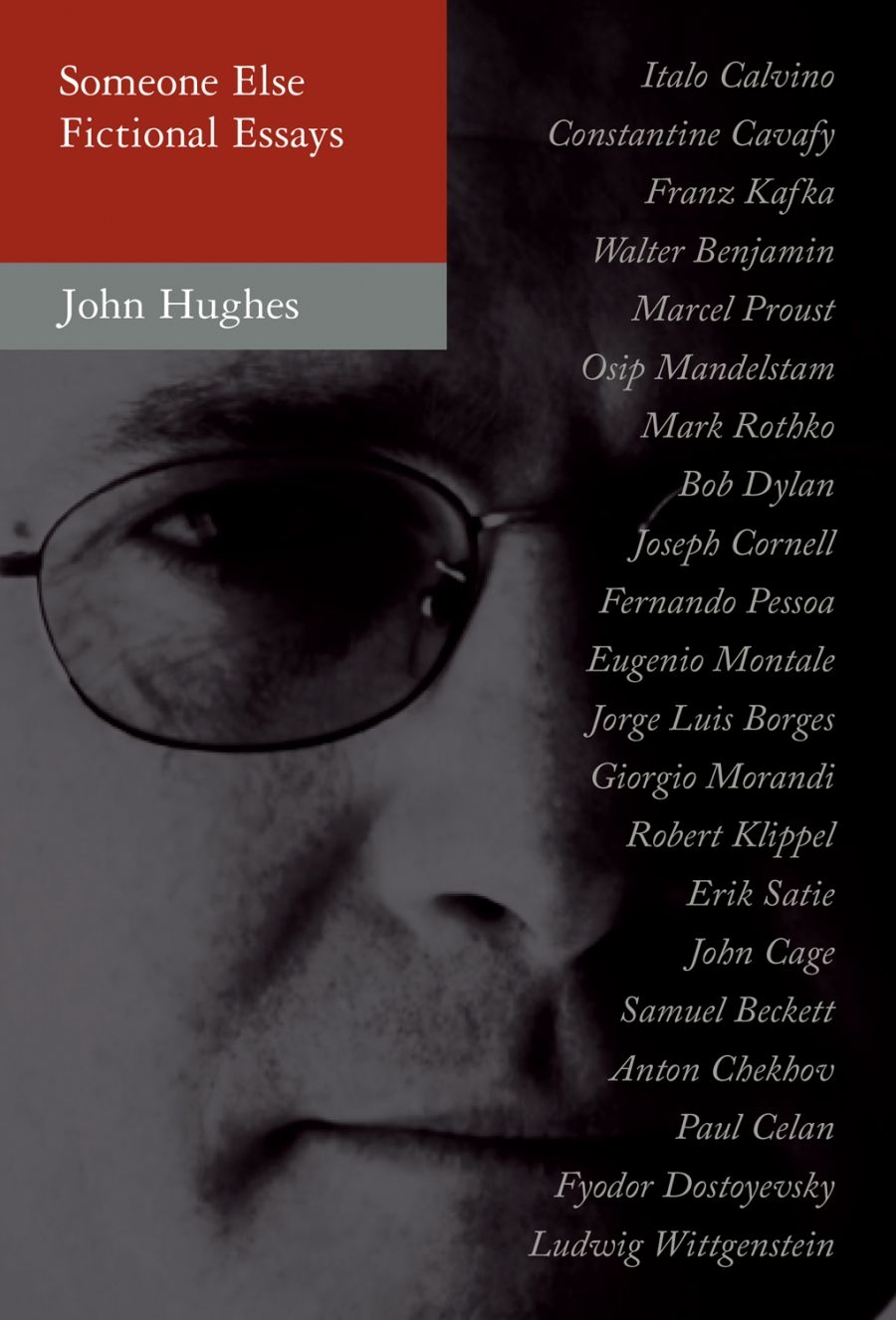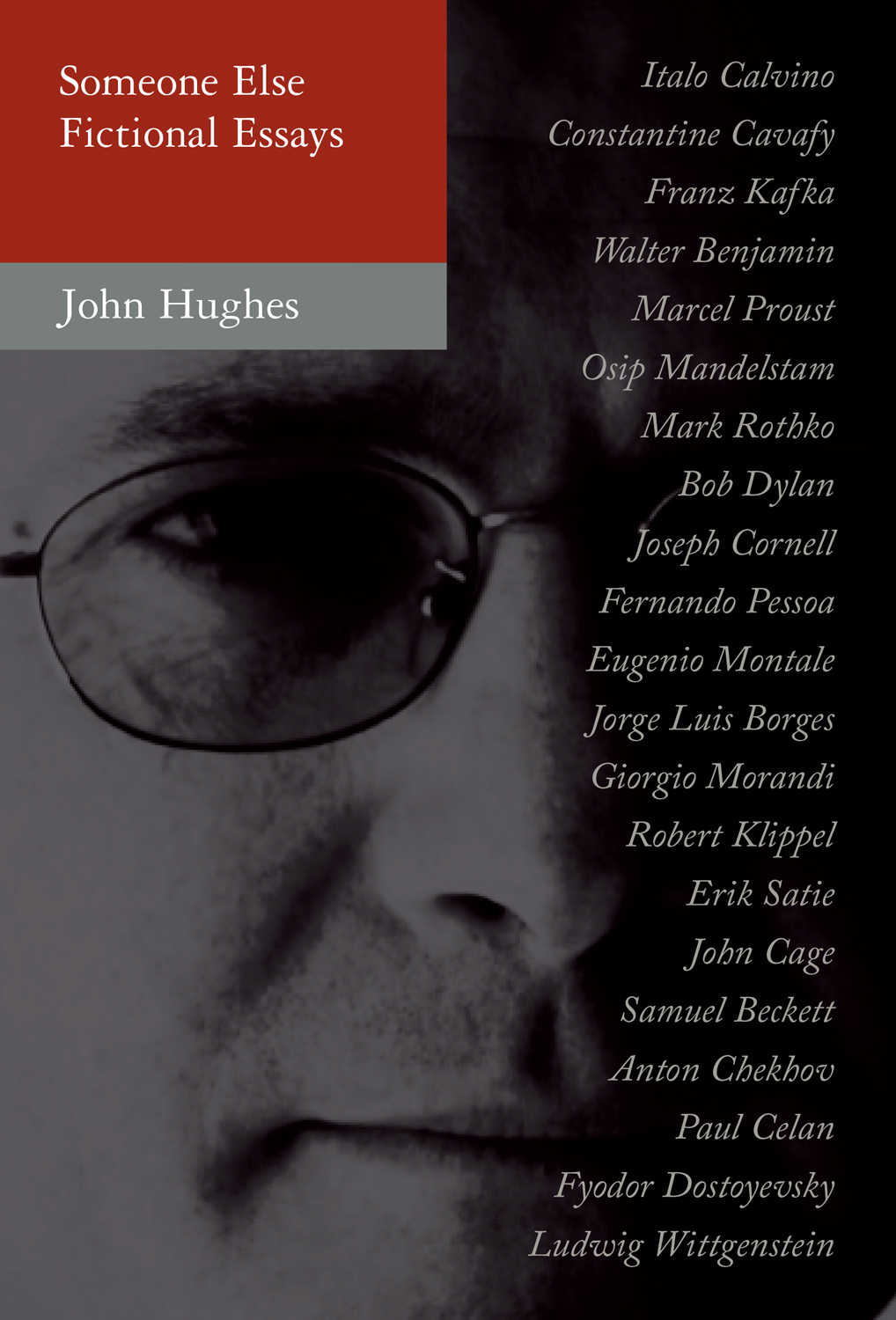
- Free Article: No
- Contents Category: Non-fiction
- Review Article: Yes
- Online Only: No
- Custom Highlight Text:
In someone else, John Hughes gives new voice to twenty-one famous men – writers, artists and musicians – who have influenced his imagination and his outlook on life. In this non-standard homage, Huges has written a series of what he calls ‘fictional essays’. Each piece delves into aspects of an individual’s thought and creativity, but Hughes does this through the prism of his own world view, his imagination, his preoccupations. The title recalls Rimbaud’s declaration, ‘I am made up of all who have made me’. When Hughes writes about his fictional version of Marcel Proust or John Cage or Mark Rothko, he is simultaneously writing about himself.
- Book 1 Title: Someone Else
- Book 1 Subtitle: Fictional essays
- Book 1 Biblio: Giramondo, $24.95pb, 205pp
- Book 1 Cover Small (400 x 600):

- Book 1 Cover (800 x 1200):

To read one must walk and run and swim and fly, but following, always following this one line, now thin, now thick, now clean, now broken, tight, loose, heavy, light, feathered, dotted, smudged, bold and faded, curved and arabesque, at once spearhead, smoke wisp, whip-crack, milky way, now worm line, now hook, now conciform, run hieroglyph, symbol, alphabet of the stars – Babel in one voice. An elusive book, no man who set out to read it has ever returned. And so, over the centuries, the legend has grown that language, too, is a fence. But what is keeping out, or in, only one returning might know.
The best essays – including those on Calvino, Walter Benjamin, Jorge Luis Borges and Robert Klippel – exude a beauty which is simultaneously meditative, dense and fiercely intelligent. Hughes displays a serious-rendered lightness of touch which produces an allegorical tone that is both gloomy and uplifting. He also reveals an adroit eye for epigraphs, which drive, illuminate and give shape to the overall project. They also entertain: it is worth knowing, for example, that Anton Chekhov once told Olga Knipper, ‘What torture it is to cut the nails on your right hand!’
At times, though, the prose sits heavily on the page, and in some instances Hughes knots his subjects and himself together in uncomfortable ways with forced, exegetical or tepid results. Notwithstanding Hughes’s playful motives, there is an accumulating gravity to the book that becomes a little relentless: there is Beckett, Chekhov and Dostoyevsky but no Dan Brown, Klippel but no Ken Done, Bob Dylan but no Celine Dion. Nevertheless, there is something delightful and gratifying in the vigorous way that Hughes sets about revealing aspects of his inner world. This project might easily have descended into a self-indulgent and even self-reverential book, but nowhere does Hughes display such tendencies.
Someone Else is, in part, an exploration of the concepts of reading and of being inspired. In this context, a paradox emerges. On the one hand, the essays are at their most rewarding when readers distance themselves from the multiple layers, particularly the life and the creative history of each individual subject – that is, if readers can avoid focusing on Hughes’s ventriloquial lips and simply accept the new offering on its standalone merits. On the other hand, each essay is richer, and Hughes’s intention and achievement more apparent, if a reader does possess some understanding of the subject’s life and oeuvre. That the book invites – requires – a dexterous and fully focused audience is itself no cause for complaint, but the challenges it raises perhaps predetermines a readership with defined and refined interests and perspectives.
Inevitably, all reading, listening and viewing informs, illuminate and changes an individual. Someone Else both encapsulates and reflects the idea that the accumulation of knowledge will almost certainly prompt new and wider searches. For example, the very short essay, ‘Stone’ – itself not one of the book’s highest points – led me to the work of Osip Mandelstam, the great Russian poet, essayist and victim of Stalin’s purges, and then to the extraordinary memoirs of his wife of nineteen years, Nadezhda Mandelstam. Someone Else invites and celebrates such reconaissances – ‘diversions’ is entirely the wrong word – in the written word and perhaps even more so in visual art and music.
Hughes’s previous book was The Idea of Home (2004), a rich, poignant and thoughtful collection of autobiographical essays. Someone Else does not match The Idea of Home’s ability to combine, and balance, complexity with accessibility. It is an uneven but nevertheless insightful, thought-provoking and ambitious book.


Comments powered by CComment